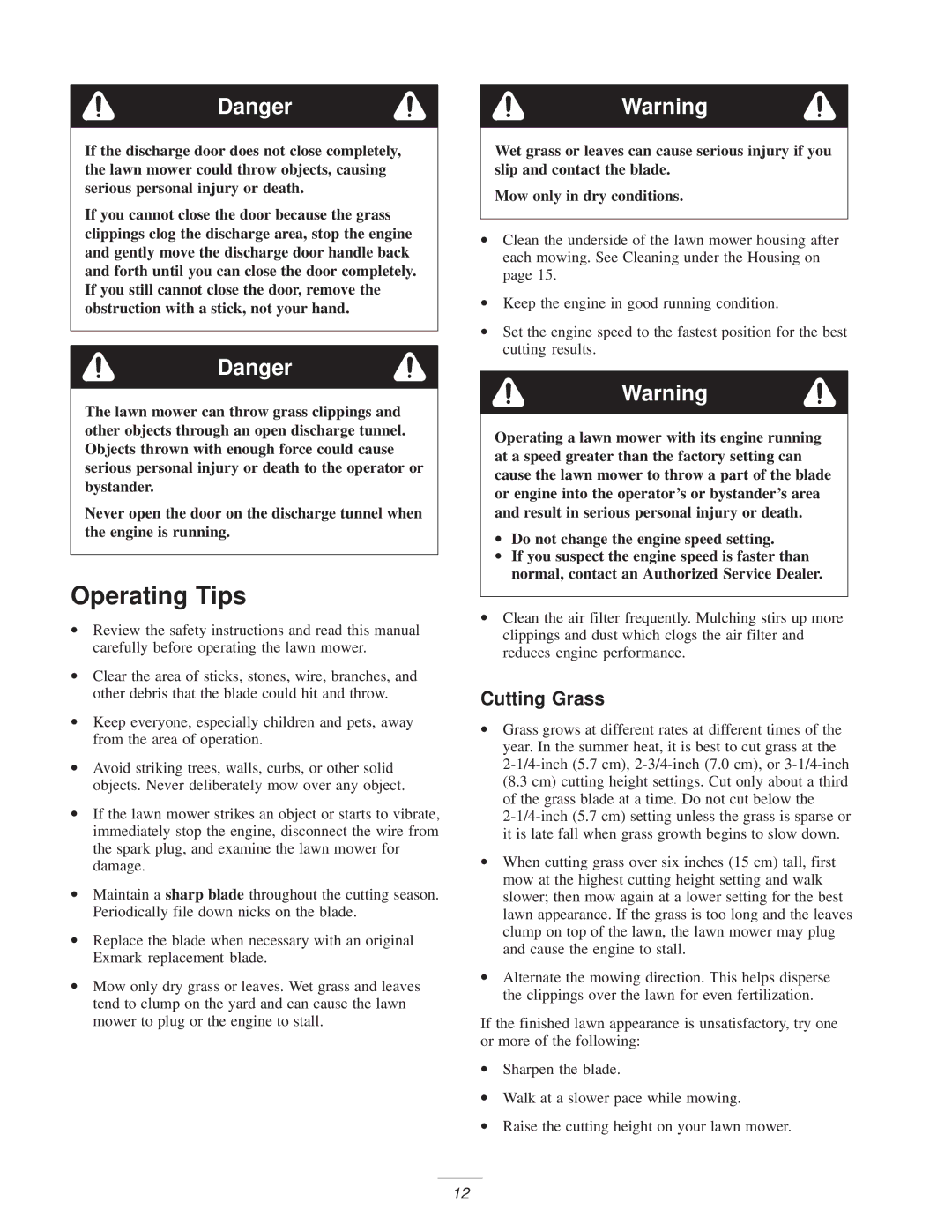
Danger
If the discharge door does not close completely, the lawn mower could throw objects, causing serious personal injury or death.
If you cannot close the door because the grass clippings clog the discharge area, stop the engine and gently move the discharge door handle back and forth until you can close the door completely. If you still cannot close the door, remove the obstruction with a stick, not your hand.
Danger
The lawn mower can throw grass clippings and other objects through an open discharge tunnel. Objects thrown with enough force could cause serious personal injury or death to the operator or bystander.
Never open the door on the discharge tunnel when the engine is running.
Operating Tips
•Review the safety instructions and read this manual carefully before operating the lawn mower.
•Clear the area of sticks, stones, wire, branches, and other debris that the blade could hit and throw.
•Keep everyone, especially children and pets, away from the area of operation.
•Avoid striking trees, walls, curbs, or other solid objects. Never deliberately mow over any object.
•If the lawn mower strikes an object or starts to vibrate, immediately stop the engine, disconnect the wire from the spark plug, and examine the lawn mower for damage.
•Maintain a sharp blade throughout the cutting season. Periodically file down nicks on the blade.
•Replace the blade when necessary with an original Exmark replacement blade.
•Mow only dry grass or leaves. Wet grass and leaves tend to clump on the yard and can cause the lawn mower to plug or the engine to stall.
Warning
Wet grass or leaves can cause serious injury if you slip and contact the blade.
Mow only in dry conditions.
•Clean the underside of the lawn mower housing after each mowing. See Cleaning under the Housing on page 15.
•Keep the engine in good running condition.
•Set the engine speed to the fastest position for the best cutting results.
Warning
Operating a lawn mower with its engine running at a speed greater than the factory setting can cause the lawn mower to throw a part of the blade or engine into the operator's or bystander's area and result in serious personal injury or death.
•Do not change the engine speed setting.
•If you suspect the engine speed is faster than normal, contact an Authorized Service Dealer.
•Clean the air filter frequently. Mulching stirs up more clippings and dust which clogs the air filter and reduces engine performance.
Cutting Grass
•Grass grows at different rates at different times of the year. In the summer heat, it is best to cut grass at the
•When cutting grass over six inches (15 cm) tall, first mow at the highest cutting height setting and walk slower; then mow again at a lower setting for the best lawn appearance. If the grass is too long and the leaves clump on top of the lawn, the lawn mower may plug and cause the engine to stall.
•Alternate the mowing direction. This helps disperse the clippings over the lawn for even fertilization.
If the finished lawn appearance is unsatisfactory, try one or more of the following:
•Sharpen the blade.
•Walk at a slower pace while mowing.
•Raise the cutting height on your lawn mower.
12
